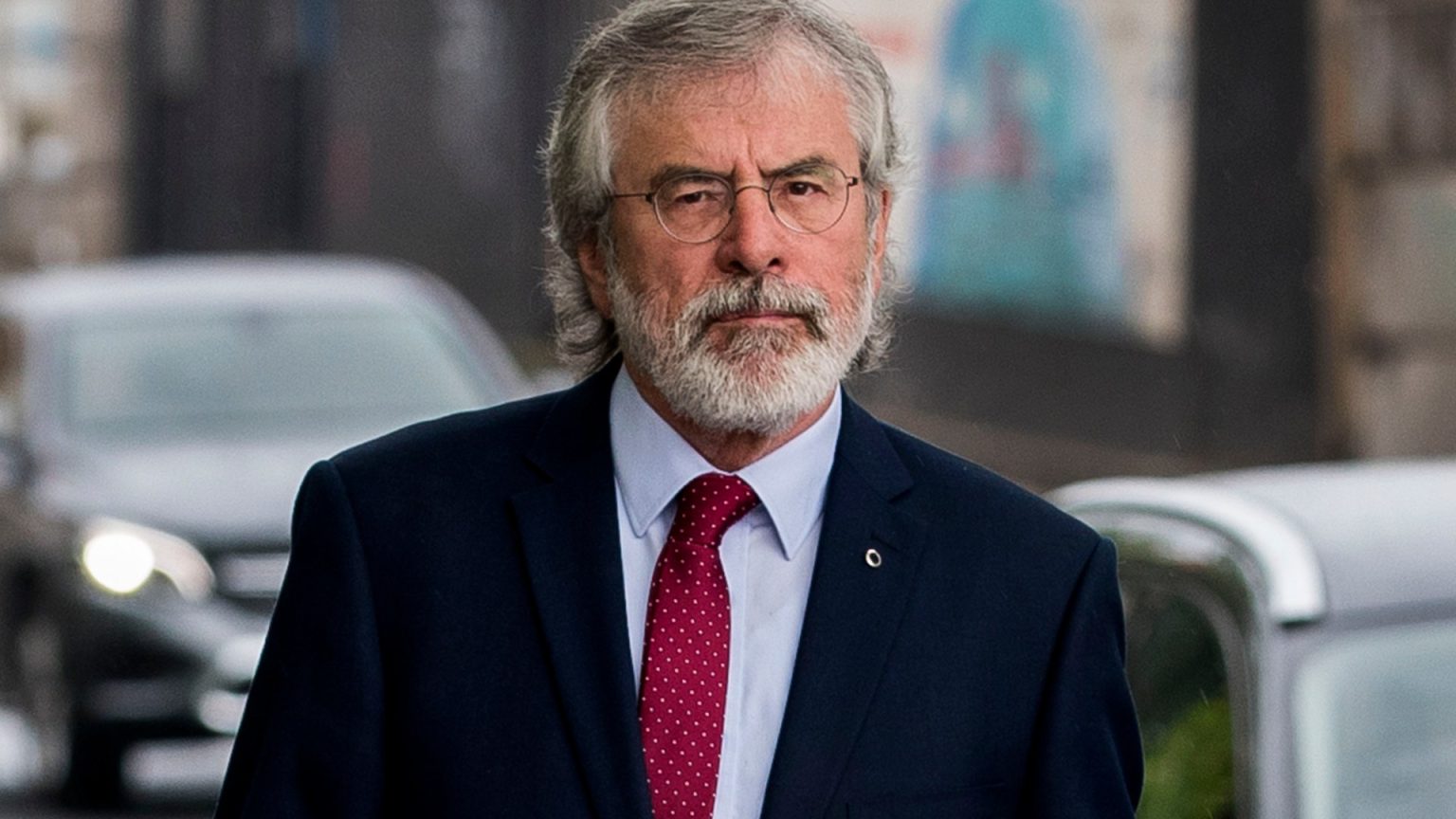The potential for Gerry Adams, former leader of Sinn Féin, to receive compensation for his detention during the Troubles has resurfaced following the Labour government’s decision to lift a ban on historic damages related to the conflict. This decision reverses a previous Tory government policy that specifically barred Adams and up to 400 other individuals from pursuing such claims. The ban was enacted after Adams’ 1975 convictions for attempting to escape prison were overturned, leading to a successful legal challenge that paved the way for his compensation claim to be reconsidered. This move has sparked considerable controversy, with critics, including former Home Secretary Lord Michael Howard, branding it “inexplicable and unjustifiable.”
Adams’ potential compensation claim stems from his internment without trial in the Maze Prison, a period during which he maintains his innocence of IRA membership. While the original rationale for his detention has been legally challenged and his convictions quashed, the subsequent legislative ban prevented him from pursuing financial redress. The recent court ruling, which deemed the ban a breach of human rights, has now prompted the Labour government to not only drop their appeal against the ruling but also signal their intention to repeal the legal obstacles that prevented such claims.
This shift in policy opens the door for numerous individuals involved in the Troubles to potentially seek compensation for their detention or other alleged injustices. A report by the think tank Policy Exchange has strongly criticized this decision, predicting a “wave of meritless litigation” relating to events that occurred over fifty years ago. The report, backed by sixteen peers, highlights the complexities and sensitivities surrounding these historical claims, including the difficulty of establishing factual accuracy and the potential for reopening old wounds. Professor Richard Ekins KC, a contributor to the Policy Exchange report, expressed concerns about the implications of this decision, forecasting a surge in legal battles over events shrouded in the past.
The potential financial burden on the public purse is another key concern raised by critics. The reopening of these historical claims could lead to significant payouts, placing a strain on public resources. Moreover, the process of investigating and adjudicating these claims will likely be lengthy and costly, further exacerbating the financial implications. The lack of readily available evidence and the passage of time pose significant challenges to establishing the veracity of these claims, potentially leading to lengthy and complex legal battles. This, in turn, raises concerns about the efficient and equitable allocation of public funds.
Beyond the financial implications, the decision to lift the ban has ignited a heated debate about justice, accountability, and the legacy of the Troubles. Supporters of the move argue that it upholds fundamental human rights and ensures access to justice for those who may have been wrongly detained or mistreated during the conflict. They emphasize the importance of acknowledging and addressing past injustices, regardless of the political affiliations of those involved. On the other hand, critics express concern that the pursuit of compensation for events that occurred decades ago could reignite old tensions and undermine the fragile peace process in Northern Ireland.
The decision to lift the ban on Troubles-related damages confronts a sensitive and complex intersection of legal principles, historical context, and political considerations. Balancing the pursuit of individual justice with the broader societal need for reconciliation and closure presents a formidable challenge. The potential for renewed litigation risks reopening old wounds and exacerbating existing divisions within Northern Ireland. The ensuing legal battles will undoubtedly delve into the intricate and often contentious narratives of the past, raising difficult questions about responsibility, accountability, and the enduring legacy of the Troubles. Navigating this complex landscape requires careful consideration of the potential consequences for both individuals and the broader peace and stability of the region. The path forward remains uncertain, but the debate surrounding this decision underscores the enduring and multifaceted challenges posed by the legacy of the Troubles.




